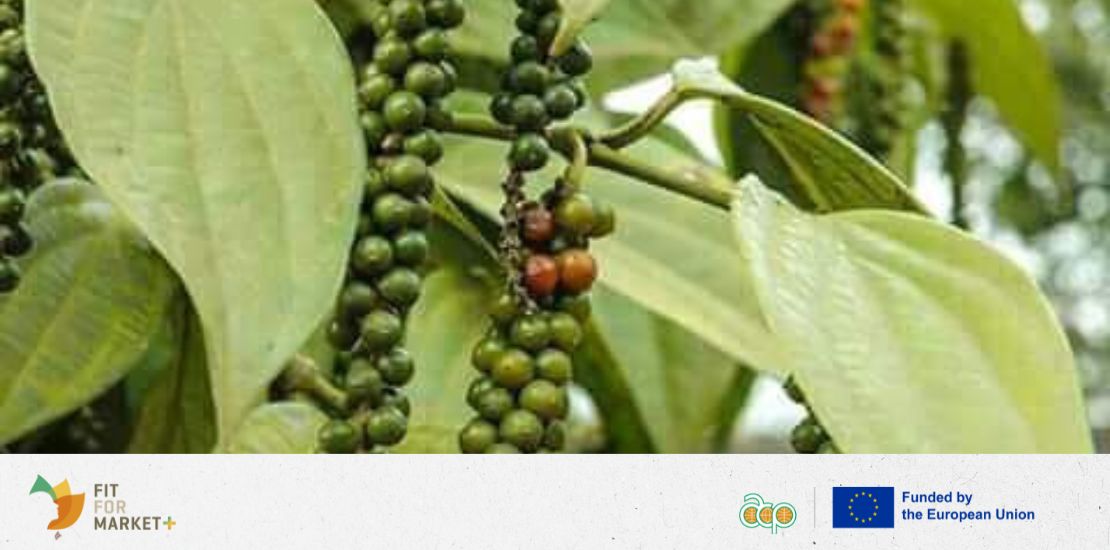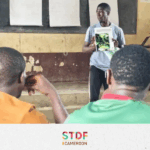- 19/07/2024
- Posted by: Sandra Borma
- Category: News

Cameroon: towards a strategic plan for the Penja pepper IGP
In the first half of 2024, a Cameroonian expert successfully completed the mission “Elaboration of the strategic development plan for the Groupement Représentatif de l’Indication Géographique Poivre de Penja (GR.IGPP)” under the Fit For Market Plus (FFM+) programme. The main objective was to design the plan while (i) identifying the priority services to be put in place to operationalise the plan, (ii) defining the group’s economic model and (iii) clarifying the role of the C.A.C. COOP.CA cooperative (focusing on group sales) in relation to the GR.IGPP. The assignment also made it possible to put in place a member loyalty and satisfaction strategy.
The working methodology was based on an assessment of the current situation, a participatory workshop focused on a self-analysis of the current situation and the intervention mechanisms of the GR.IGPP, and the use of the data collected. The expert then formulated a business model and a funding mechanism, which were tested and evaluated.
Despite the logistical and organisational difficulties encountered, due in particular to the geographical dispersion of the operators, the mission was successful thanks to the awareness and use of the GI label already achieved by the GR.IGPP, the provision of diagnostic studies and the marketing plan currently being drawn up, as well as the full availability of the management team of the GR.IGPP and the cooperative.
The next stages of implementation will be based on the recommendations made by the expert at the end of his mission, namely
- Creation of a trained team capable of monitoring the strategic plan.
- Recruitment of section managers.
- Mobilisation of an external consultant to monitor the implementation of the action plans.
- Drawing up a global business plan to ensure the financial and strategic monitoring of the development plan.
This activity is supported by the Fit For Market Plus (FFM+) programme, implemented by COLEAD within the Framework of Development Cooperation between the Organisation of African, Caribbean and Pacific States (OACPS) and the European Union. This publication receives financial support from the European Union and the OACPS. The content of this publication is the sole responsibility of COLEAD and can in no way be taken to reflect the views of the European Union or the OACPS.





